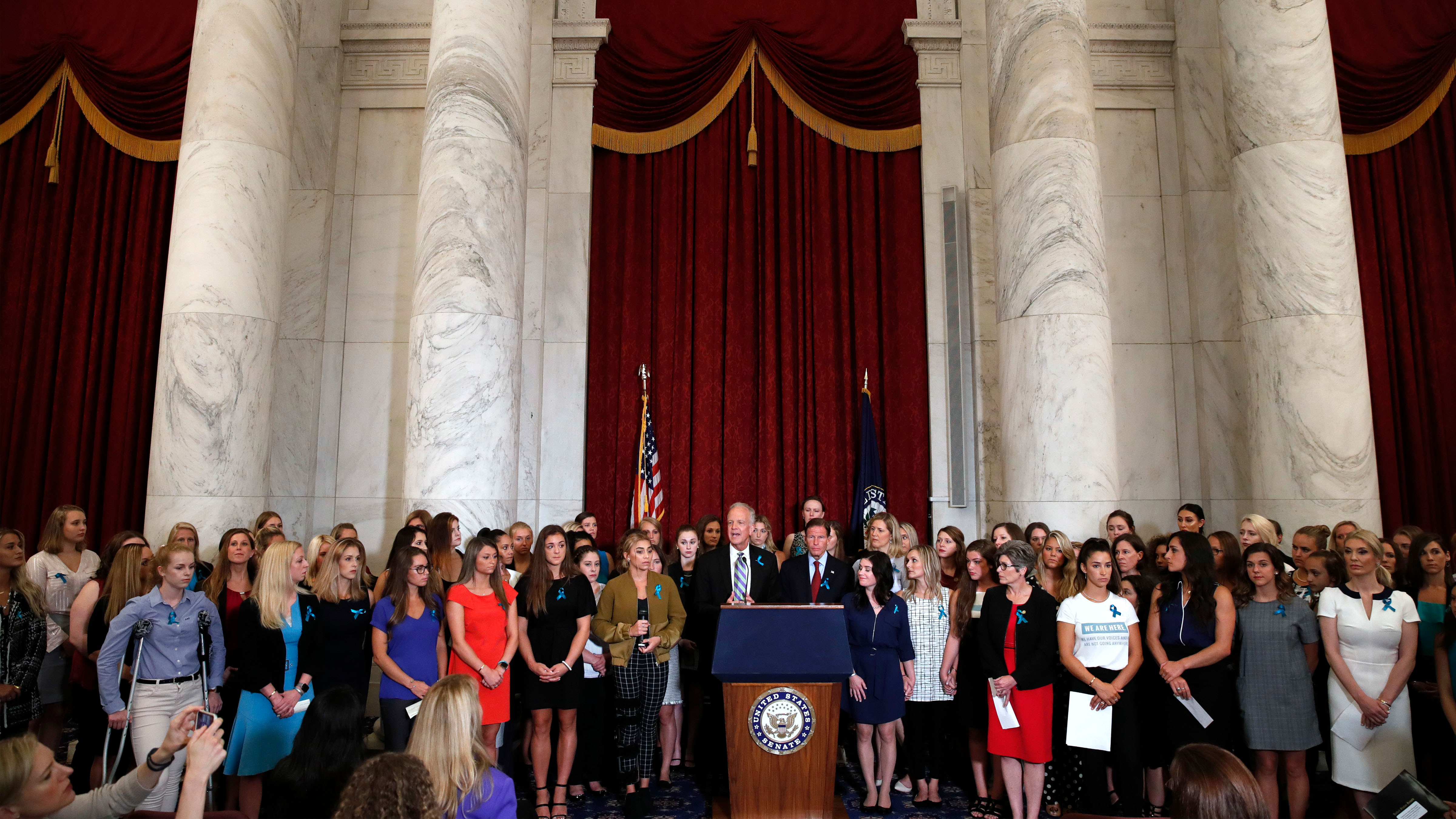Ceremony marks end of war, commander weighs in on Iraq, ISIS threat

FORT BRAGG, N.C. (WTVD) -- Fort Bragg's commanding general hasn't had a chance to fully reflect on the end of Operation Enduring Freedom, but Lt. Gen. Joseph Anderson can describe parts of the historic drawdown from Afghanistan pretty simply.
"It was a very challenging and demanding year," said Anderson, remembering the 52 military members who died during the recent 10-month security mission. "It was constantly re-focusing everything from month to month to month-from the beginning to the end."
On Friday morning, the XVIII Airborne Corps marked an official end to their role in Operation Enduring Freedom. They conducted an "Uncasing of the Colors" ceremony on the Main Post Parade Field. The ceremony included a change of command as the Corps Deputy Commander, Maj. Gen. Clarence K.K. Chinn turned over duties to Maj. Gen. Jefforey A. Smith.
"It's important for us to honor our lineage," said Anderson, who called the execution of the last mission flawless. "It's important for us to recognize what the Corps has done throughout history. It's the way you close one chapter and start another."
The XVIII Airborne Corps was the first combat group to enter Afghanistan in 2002, and the last to leave the country in a NATO-led security mission. Those troops, who have returned home to Fort Bragg in waves over the past several weeks, conducted base closures, provided security during a drawn out Presidential election and fighting season, and helped train Afghans for combat and governmental affairs.
Anderson, one of the top U.S. commanders in Afghanistan, oversaw the International Security Assistance Force, known as ISAF. He led forces through a fighting season, a drawn out Presidential election, and training of Afghan security forces. The BSA will keep a limited number of U.S. troops in Afghanistan past 2015, and that's why Anderson doesn't foresee American troops back in the country, at least in a combat role.
"Unlike Iraq, the good news is we have permanent presence there, not as much obviously, a different mission obviously, but we have presence there to continue developing the country both from a government perspective and from a security perspective," said Anderson.
"So the good news is we didn't leave it totally like we did in Iraq, which was a very hard thing to do, and we knew leaving Iraq would be a totally risky thing, and obviously it turned out to be that way."
NEW MISSIONS, INCLUDING ISIS
As the Corps marked the end of a war, Fort Bragg announced additional troops will deploy in the fight against Islamic militants.
Next month, 1,000 82nd Airborne Division paratroopers will deploy to Southwest Asia to train Iraqi forces against ISIL. It was previously announced that 250 paratroopers would deploy at the end of this month in the same security capacity.
In a statement, Maj. Gen. Richard D. Clarke, the 82nd Airborne Division commanding general, said his soldiers are ready to help train Iraqis to take on fighters from the so-called Islamic State, or ISIS.
"They are a dedicated group who will share the high training standards and tactical expertise of leaders in the 82nd Airborne Division to train and assist the Iraqi security forces and enable them to defeat the Islamic State of Iraq and the Levant," he explained.
The paratroopers are preparing for a nine-month deployment.
Anderson called ISIS the "greatest threat" of the moment.
"Everywhere you watch, like right now Kuwait is saying what a threat they are to Kuwait. So as that cancer kind of spreads throughout the Middle East, I think that's probably the first and foremost challenge right now," said Anderson.
Anderson also noted other global threats, including North Korea and Iran.
As the Corps prepares to reorganize in the spring and conduct major Special Operations training over the summer, they do so under an Army that is downsizing. If cuts were to exceed current Department of Army projections, Anderson said it would become a challenge.
"We've got to do things leaner, meaner, more efficiently, more effectively," he said. "Guys and gals are still deploying at a very large rate, so the rheostat is not being turned down based on sending people all over the place, and that's tough."
"If it [the Army] gets any smaller than what's projected, I am [concerned]," Anderson continued. "As you know, we don't know necessarily what's coming down the road, and as you look at what's going on around the globe, based on what the demand could potentially be, if we get any smaller, it could get very tough."




